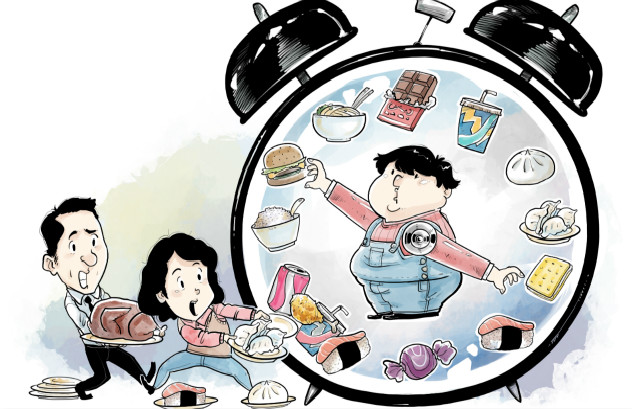Fall in forex reserves not a cause for concern
 |
|
A clerk counts 100 yuan banknotes at a branch of China Construction Bank in Nantong, East China's Jiangsu province, Sep 21, 2016. [Photo/VCG] |
In January China's foreign exchange reserves dropped to $2.9982 trillion, the first decline below $3 trillion in the past five years. According to People's Bank of China, the country's central bank, the main reason for the decline is the release of foreign exchange funds to help maintain the balance between supply and demand. In addition, Chinese residents' travel and consumption overseas, as well as enterprises' debt repayment and settlement also increased during Spring Festival, which is the seasonal cause of the decline in the foreign exchange reserves.
I agree with the mainstream domestic view that we should not be excessively worried about the decline, because China's foreign exchange reserves are huge compared with those held by other countries. It is generally assumed that a country's minimum foreign exchange reserves should be enough to cover three months' imports and all short-term foreign debts, and that China's about $3 trillion foreign exchange reserves are more than serve the purpose.
But for an emerging economy like China, its foreign exchange reserves should be much more than the minimum amount, so that it can maintain the stability of the yuan's exchange rate, support Chinese enterprises' "go global" strategy, guarantee financial security and microeconomic stability, and provide foreign aid.
In 1996 China's foreign exchange reserves crossed $100 billion for the first time, and in 2001 they exceeded $200 billion. In 2006 the foreign exchange reserves crossed the $1 trillion mark, when China surpassed Japan as the biggest holder of foreign exchange reserves. By the end of 2011 China's foreign exchange reserves exceeded $3 trillion, and reached their peak of nearly $4 trillion in 2014.
So it is understandable that after the foreign exchange reserves fell below $3 trillion, many are worried about the economy's health, although the decline has remarkably narrowed in recent months compared with the past two years when China faced great serious economic downturn.
The year 2014 is the turning point of China's economy, because that is when it switched from high-speed to medium-high speed growth. China's GDP declined from 6.9 percent in 2015 to 6.7 percent in 2016, and its trade surplus, which is the main source of foreign exchange reserves, fell 9.1 percent in 2016. Besides, the yuan depreciated 5.8 percent against the US dollar in 2015, and 6.6 percent in 2016. All these have had a huge impact on China's foreign exchange reserves.
Therefore, the decline in the foreign exchange reserves should draw the authorities' attention, as it will influence market confidence and expectation, which in turn will influence macro control policies. China should take effective measures to not only stabilize the foreign exchange reserves and prevent a large-scale decline, but also stabilize the country's economic fundamentals to keep the foreign exchange reserves within normal fluctuation range.
The central bank recently launched a crackdown on speculators and strengthened the compliance review of foreign exchange. The move can help stabilize the yuan's exchange rate, and plug the loopholes to prevent the large-scale capital outflow. However, these moves are just actions to carry out existing rules more strictly, which is far from the old path of capital control.
Moreover, the key to stabilizing China's foreign exchange reserves is to further improve the country's economic fundamentals through precise control. So the authorities should promote supply-side structural reform through overcapacity-reduction, destocking, deleveraging, cost-cutting and making up for deficiencies, in order to strike the right balance between stabilizing growth and adjusting structure.
Monetary policy, which is the major tool of macroeconomic control, has slightly changed in the past two years. Although the authorities still believe in a steady monetary policy, the central bank has taken some measures to "structurally increase the interest rate", which indicates China's monetary policy is slightly tightening. This adjustment is conducive to stabilizing the yuan's exchange rate and foreign exchange reserves at a reasonable level, and eased outside worries about China's foreign reserves and economy.
The author is a research fellow at the National Academy of Economic Strategy, Chinese Academy of Social Sciences.





















